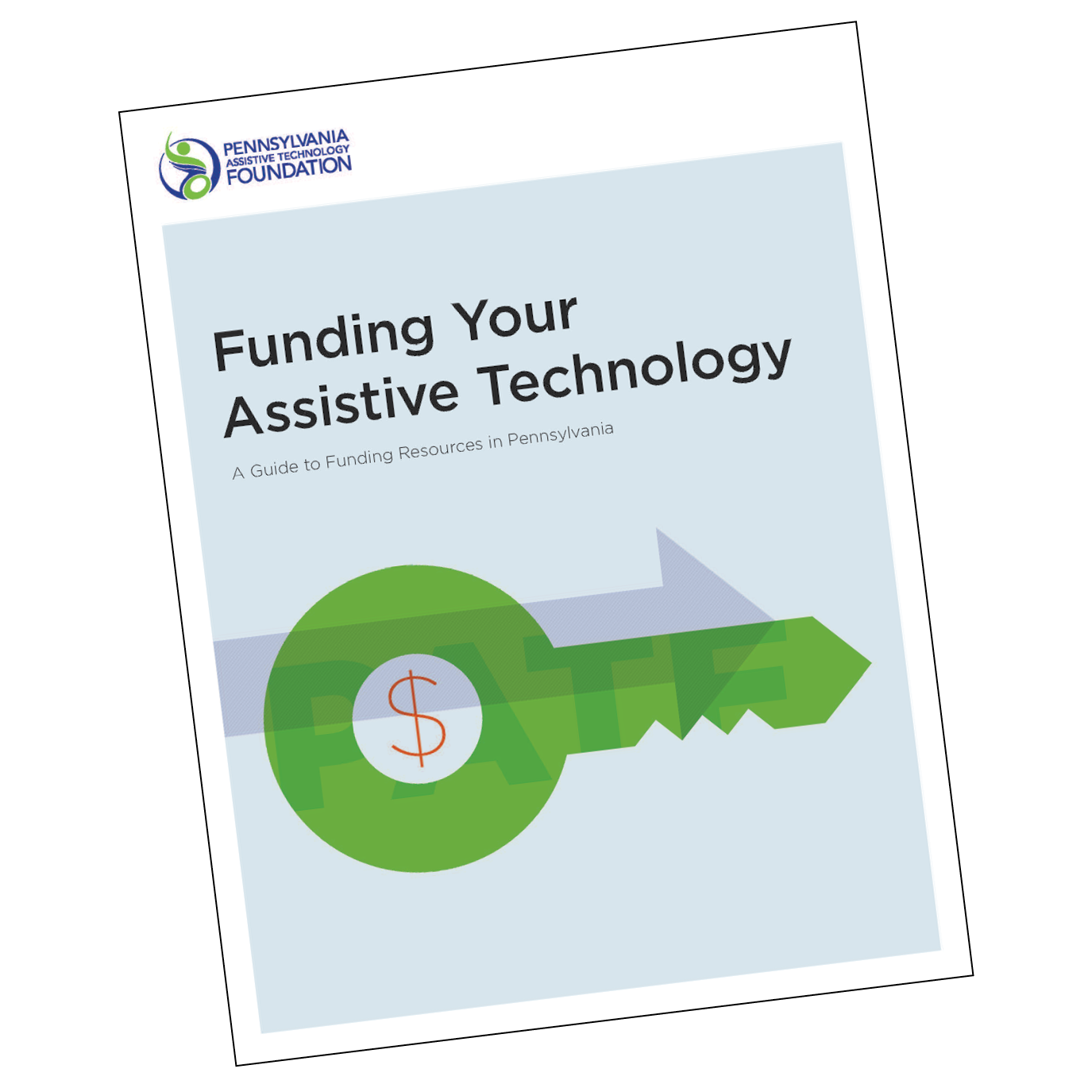It can be a very confusing and difficult task figuring out who can help you pay for the assistive technology you need. Sometimes the cost is covered through your health insurance policy, or by a governmental agency, or by a non-profit organization. Other times, you may have to pay, in part or in full, for the device yourself.
Your ability to receive grant money from a funding source may depend on a number of factors, including your type of disability, your age, when you acquired your disability, your income, where you live, the type of insurance you have, the AT device you need and the threshold guidelines of a particular program.
Here are some examples:
If you’re unsure of your funding options, or if you learn you’re not eligible for any government funding, or if you just want to pay for the device(s) yourself without any hassle, try Pennsylvania Assistive Technology Foundation (PATF). PATF is a statewide, non-profit organization that provides no-interest and low-interest loans to buy AT. PATF staff also provides information about other possible funding resources so that your loan is as small as possible. Many PATF borrowers would not qualify for loans from traditional banks or credit unions. PATF serves Pennsylvanians of all ages, all income levels, and all disabilities and health conditions.
PATF has two loan programs:
There is no other program like PATF in Pennsylvania! For more information, call 888‑744‑1938; or go to the website, www.patf.us.
Taking out a PATF Mini-Loan is a great way to build credit! Every month, PATF reports repayments to the credit bureaus so that your FICO scores will increase when you pay your loan on time.

Pennsylvania Assistive Technology Foundation (PATF) published Funding Your Assistive Technology: A Guide to Funding Resources in Pennsylvania. This guide covers a variety of topics in detail, with chapters that include:
Download the funding guide or call 888-744-1938 to request a copy.